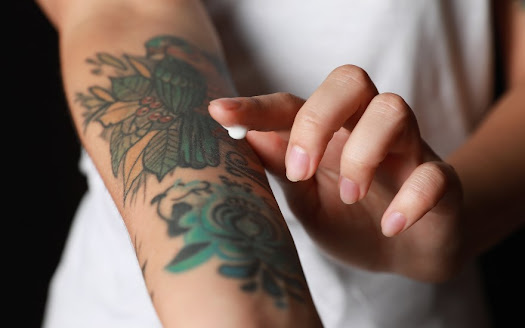Health risks associated with the piercing
Are you or your teen considering body piercing? Is it hard to look at this topic face to face, or are you unsure of the real dangers of body piercing? Sometimes it's hard to separate the facts from the myths surrounding body modification. When this happens, it becomes difficult for parents and teens to reach agreement about whether body piercing is an acceptable form of self-expression.
First, you must understand that the dangers of body piercing are very real. There are real problems that can and do arise, and should not be ignored. On the other hand, by taking a few precautions and taking proper care of your piercing with the help of piercing numbing cream, you can reduce your chances of having problems and greatly increase your chances that you will be one of the millions of people who end up with a healthy, normal life.
What are the health risks of body piercing?
· Infection. Without proper care, infection can lead to scarring and even blood poisoning. Piercing infections are unattractive and can be very dangerous. Use numbing cream for piercing to prevent infection.
· Allergic reaction. Some people are sensitive to certain metals and only realize it when they pierce and have a severe reaction to the jewellery. Rash, swelling and difficulty breathing can lead to shock and hospitalization.
· Nerve damage. If the piercing is not applied carefully, it can push through the nerve, break it, and leave the surrounding area permanently dead of any feeling.
· Excessive bleeding. It seems so. If you pierce and hit a major blood vessel, you may have trouble stopping the bleeding and may need to have it cleaned in the emergency room. not pretty
· Risk of cross-contamination. If you are pierced with an improperly sterilized needle, you can become infected with hepatitis, the HIV virus, or other blood-borne pathogens.
· Cysts. These are hard lumps of scar tissue that look like cysts at the base of the piercing that sometimes form at the piercing site for no apparent reason.
· No blood donation. Is being a blood donor important to you? Is someone in your family sick and may need blood donation in the near future? Don't pierce You cannot donate blood until a year after the piercing - no exception.
· Dental hazards. A number of problems can arise from a piercing in the mouth, including loss of teeth, wear of tooth enamel, damage to the gums and jaw line, and aspiration (inhalation) of loose pieces of jewellery into the lungs. Infection and swelling of the tongue are also a possibility, and very unpleasant.
Are there other body piercing risks?
It depends on what risk you consider. There are certainly things you should consider that could point you to potential drawbacks to the piercing. If you can't bear the pain, you run the risk of suffering more than you would for your vanity. Some piercings barely hurt at all; others may be very rough for a few weeks. If you can't clean your piercing twice a day, you're putting yourself at risk end of discussion. And you'll have to do your own sea salt soak or H2O treatment without fail.
You might not want to hear this, but face it; Other people may judge you based on your piercing, so really think about it. Does it bother you if others feel like they're afraid of you? Do you want to convince yourself for a job interview or want to get your piercing removed? Would you mind if your piercing bothered your grandparents or family friends?





Comments
Post a Comment